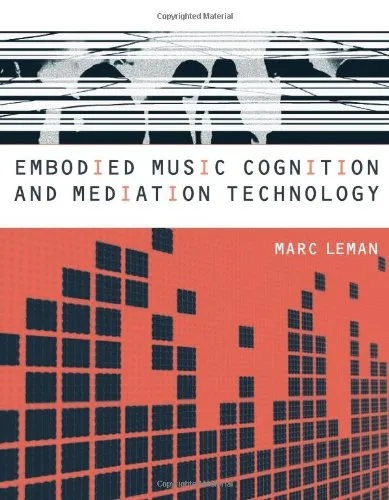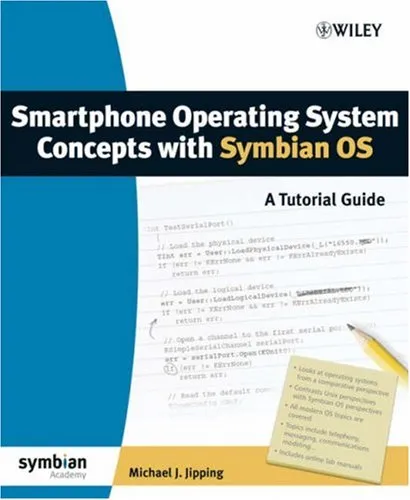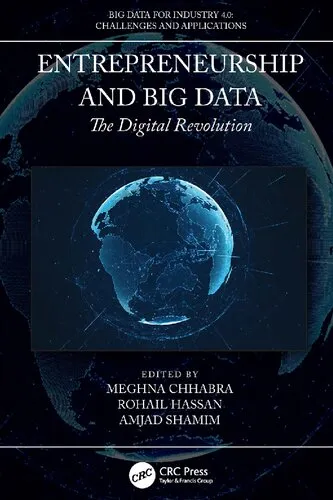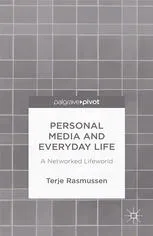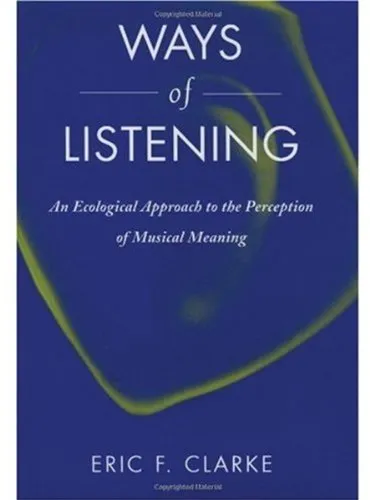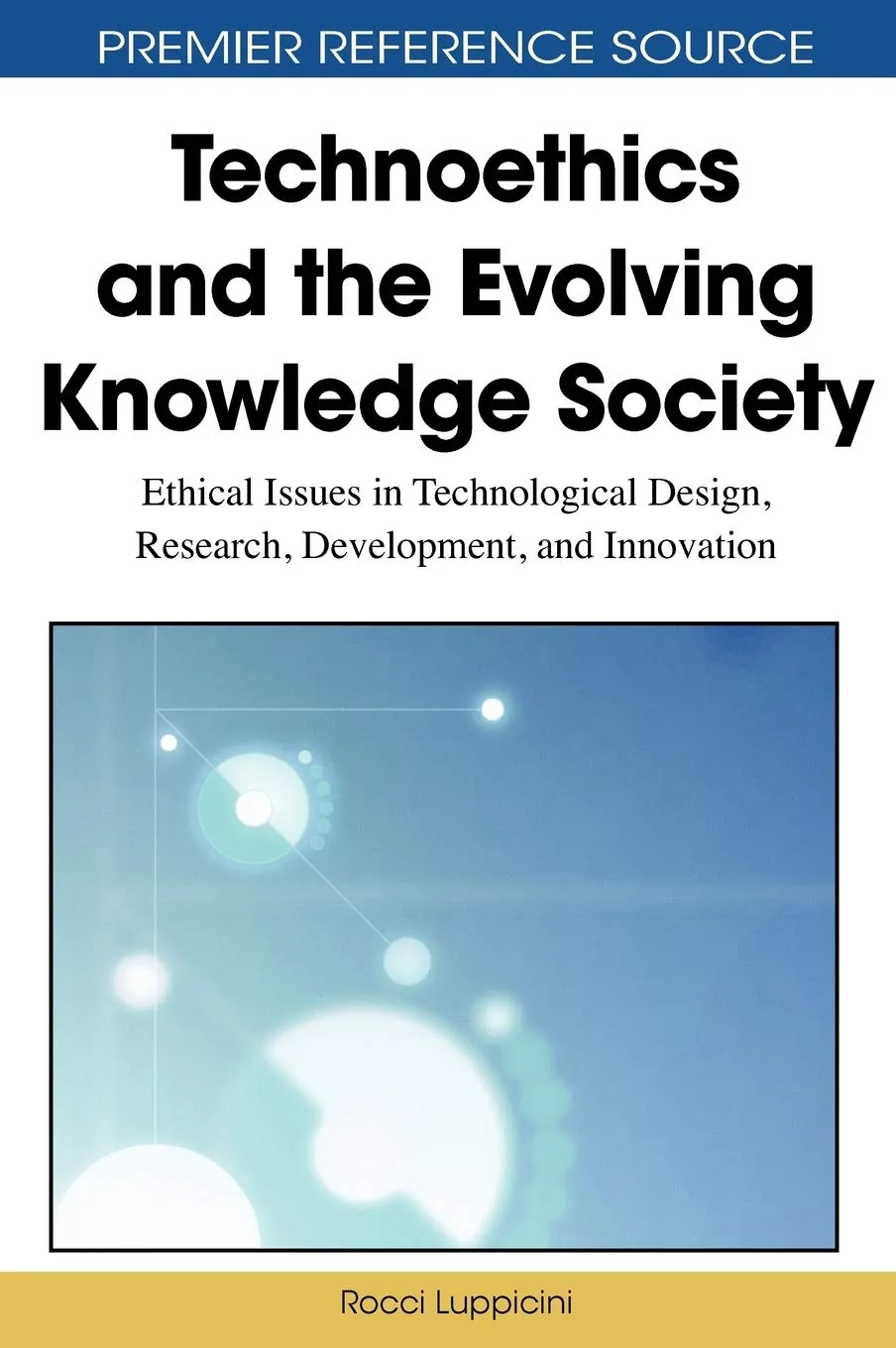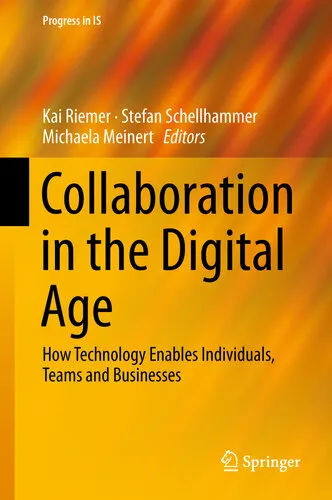Embodied Music Cognition and Mediation Technology
4.0
Reviews from our users

You Can Ask your questions from this book's AI after Login
Each download or ask from book AI costs 2 points. To earn more free points, please visit the Points Guide Page and complete some valuable actions.Related Refrences:
Introduction to "Embodied Music Cognition and Mediation Technology"
"Embodied Music Cognition and Mediation Technology," authored by Marc Leman, represents a transformative approach to understanding the dynamic interplay between human cognition and musical experience in the digital age. The book investigates the foundational principles behind how the body and mind interact with music, highlighting the essential role of embodiment and technology in shaping our musical perception, creativity, and interaction. By bridging theoretical concepts and real-world applications, Leman's work invites readers to explore how physical and cognitive processes influence the way music is perceived, performed, and mediated through technology.
This interdisciplinary work merges insights from musicology, cognitive psychology, neuroscience, and technological studies to address how music acquires meaning through human interactions and technological mediators. With increasing reliance on digital tools, Leman underscores their transformative role in expanding our musical understanding while posing challenges that demand careful ethical and technical consideration.
Designed for scholars, musicians, and technologists alike, this book provides an in-depth exploration of embodied music cognition in ways that are both theoretically robust and practically applicable. Through its lucid writing and well-structured approach, it sheds light on how music, as a profoundly human experience, becomes an ongoing conversation between the mind, the body, and technology.
Detailed Summary of the Book
At its heart, "Embodied Music Cognition and Mediation Technology" delves into the concept of embodiment, emphasizing that music is not just an auditory experience but also a profoundly physical one. Leman builds upon the idea that cognition cannot be separated from the body, asserting that music becomes meaningful when it resonates with our bodily sensations, movements, and emotions.
The book begins by outlining the theoretical framework of embodied music cognition, shedding light on how the body’s movements and sensory perceptions interact with the symbolic and abstract qualities of music. Leman integrates theories from cognitive science and philosophy to establish a comprehensive understanding of embodiment within a musical context.
Moving forward, the discussion transitions to mediation technology, exploring how advancements in audio, visual, and interactive systems are shaping the ways we engage with and interpret music. From virtual reality platforms to wearable sensors, Leman examines how technology is becoming a medium for musical expression, offering new possibilities for creativity and analysis. He also discusses the potential drawbacks of technology, including the risk of depersonalizing music or reducing complex phenomena to data.
The latter sections of the book focus on practical applications, particularly in performance and pedagogy. By connecting theory with practice, Leman demonstrates how embodied cognition principles can inform approaches to music education, interactive installations, and performance environments. These insights offer depth not only to academic readers but also to practitioners seeking innovative frameworks to enrich their engagement with music.
Key Takeaways
- Music cognition is inherently embodied, meaning that understanding and experiencing music is rooted in the interplay between body and mind.
- Technology plays a dual role as both a mediator and a transformative force in how we create, perceive, and analyze music.
- Embodiment extends beyond listening, encompassing movement, sensory feedback, and emotional responses during musical interactions.
- Ethical considerations are crucial as digital tools can alter the fundamental nature of the human-musical relationship.
- Interdisciplinary approaches are essential for advancing the understanding of music cognition in both theoretical and practical domains.
Famous Quotes from the Book
"Music becomes meaningful not when it resides in abstract structures, but when it resonates through the living body."
"Technology extends the boundaries of musical interaction, yet it simultaneously demands a rethinking of what it means to be human in the musical world."
"Embodiment is the bridge that connects sonic phenomena to the mind, making music a shared human experience."
Why This Book Matters
In an era where digital technologies are rapidly reshaping human interaction with art and culture, "Embodied Music Cognition and Mediation Technology" serves as a crucial roadmap for understanding the future of music. Leman's work brings a fresh perspective to music cognition, challenging traditional notions that isolate music from the physical, emotional, and technological realities of the human experience.
This book is not merely academic; it is deeply practical and actionable. From educators looking to refine their teaching tools to technologists developing new musical interfaces, it offers insights that can foster innovation and collaboration. Furthermore, its interdisciplinary focus ensures that it engages readers from diverse backgrounds, making it a pivotal resource for anyone interested in the convergence of music, technology, and embodiment.
By placing human experience at the forefront of musical analysis and innovation, "Embodied Music Cognition and Mediation Technology" reminds us that music is much more than sound—it is an extension of our humanity, enriched and reshaped by the tools we create and the ways we interact with the world around us.
Free Direct Download
You Can Download this book after Login
Accessing books through legal platforms and public libraries not only supports the rights of authors and publishers but also contributes to the sustainability of reading culture. Before downloading, please take a moment to consider these options.
Find this book on other platforms:
WorldCat helps you find books in libraries worldwide.
See ratings, reviews, and discussions on Goodreads.
Find and buy rare or used books on AbeBooks.
1501
بازدید4.0
امتیاز0
نظر98%
رضایتReviews:
4.0
Based on 0 users review
Questions & Answers
Ask questions about this book or help others by answering
No questions yet. Be the first to ask!
